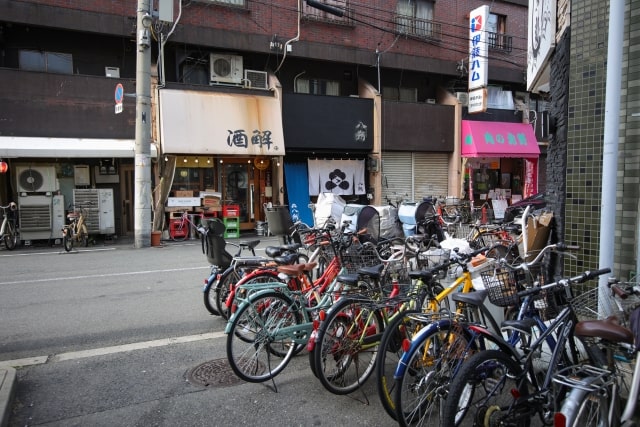As of November 1, 2024, Japan will enforce stricter penalties for cycling under the influence of alcohol. Previously, Japan’s traffic law only applied penalties for cyclists who were severely intoxicated, but the new amendment broadens the scope to include those with even minor traces of alcohol in their system. This move aligns cycling laws with the strict standards already applied to motorists. In this article, we will explore the updated legal framework, the risks associated with drunk cycling, and how Japan’s regulations compare globally.
What Constitutes Drunk Cycling?
In Japan, drunk cycling includes any instance where a cyclist has alcohol in their bloodstream. Previously, only cyclists deemed to be in a “drunken state” (where the person was significantly impaired) could be penalized. However, the new law introduces penalties for “driving under the influence,” meaning cyclists with a blood alcohol content (BAC) level of 0.3 mg/ml or more in their blood, or 0.15 mg/L or more in their breath, can now be punished.
Penalties for Drunk Cycling
Starting November 1, 2024, cyclists found riding under the influence of alcohol face:
- Up to three years imprisonment or a fine of up to ¥500,000 ($4,000 USD).
For those considered to be in a drunken state (more severely impaired), the penalties are:
- Up to five years imprisonment or a fine of up to ¥1,000,000 ($8,000 USD)
Additionally, individuals who assist in or enable drunk cycling by providing alcohol or bicycles to intoxicated individuals may also face penalties of up to three years imprisonment or a fine of ¥500,000 ($4,000 USD).
Why Japan is Cracking Down on Drunk Cycling
The rise in cycling accidents is a major factor behind Japan’s stricter regulations. In recent years, Japan has seen an increase in the number of accidents involving cyclists under the influence of alcohol, resulting in both personal injuries and collisions with pedestrians or vehicles.
Bicycles, unlike motor vehicles, offer no protective barrier for the rider. A cyclist impaired by alcohol is not only a danger to themselves but also poses a significant risk to pedestrians and other road users. By enforcing stricter penalties, Japan aims to reduce the occurrence of such accidents and promote safer streets.
International Comparison: Cycling and Drinking Laws
Japan’s new approach to cycling under the influence is part of a broader global trend. Several countries already enforce strict drunk cycling laws:
- Netherlands: Known for its cycling culture, the Netherlands also enforces strict drunk cycling regulations, with fines of up to €140 (approximately $150 USD) for cyclists caught over the alcohol limit.
- United States: Laws vary by state, but many, like California, issue fines of up to $250 for cyclists found intoxicated.
- United Kingdom: Cycling while drunk can lead to fines up to £1,000 under the Road Traffic Act, and cyclists who pose serious risks to others can even face jail time.
What sets Japan apart is the introduction of imprisonment penalties, which are notably harsher than those in many Western countries. This reflects Japan’s broader cultural emphasis on order and safety, particularly in urban areas where pedestrian traffic is heavy.
The Dangers of Drunk Cycling
Drunk cycling is dangerous for several reasons:
- Reduced Control: Alcohol impairs balance and coordination, critical for controlling a bicycle. This makes it difficult to navigate obstacles, steer effectively, or respond quickly to changing road conditions.
- Increased Risk of Injury: In the event of an accident, cyclists are far more vulnerable than drivers in cars. A fall from a bicycle while impaired can result in severe injuries, and collisions with pedestrians or vehicles can be fatal.
- Public Safety: In densely populated areas, cyclists share the road with pedestrians and vehicles. Drunk cycling increases the risk of serious accidents involving other road users.
Penalties Beyond Cycling: Broader Legal Ramifications
In addition to the penalties for cyclists, the new law extends liability to those who contribute to drunk cycling. For example, if a person provides a bicycle to an intoxicated individual or serves alcohol knowing the person intends to cycle, they could face legal consequences as well. This aspect of the law highlights Japan’s holistic approach to preventing road accidents and reinforces the social responsibility of not just cyclists but their peers.
Conclusion: Safety First, Both Locally and Globally
Japan’s 2024 amendment to the Road Traffic Law demonstrates the country’s commitment to road safety. While cycling is an efficient and eco-friendly way to travel, it also comes with responsibilities—foremost among them, refraining from riding under the influence of alcohol.
This legal update is a reminder to cyclists worldwide of the dangers associated with drunk cycling. Japan’s approach, which includes steep fines and imprisonment, sets a strong precedent for other nations that are working to improve cycling safety. By fostering a culture of responsibility and awareness, these changes aim to reduce accidents and protect both cyclists and the public at large.
For those who cycle regularly, whether in Japan or abroad, it’s crucial to stay informed about local regulations and always prioritize safety over convenience. After all, a momentary lapse in judgment can have lifelong consequences.









Comments